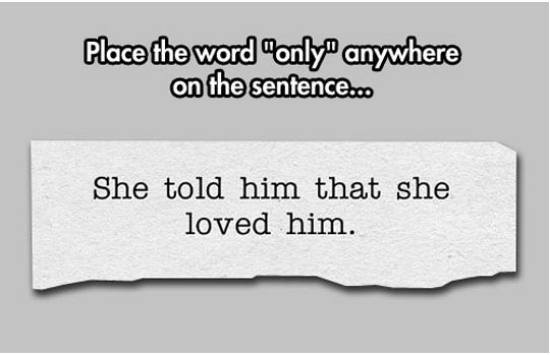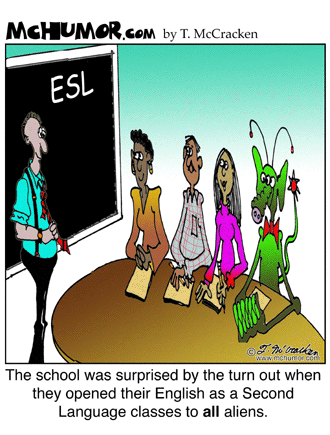Consider this sentence and count all possible interpretations of this statement if we add “only” in different strategic positions. This is an excellent example for instructors to use to demonstrate the importance of adverb placement to their students. Let’s count all the possibilities here. I will start with a few, but not all of the possibilities. Please contribute other possible scenarios in the comments.
1. Only she told him that she loved him. Meaning: she was the only person to tell him that, but there could be other people who loved him.
2. She told him that she loved only him. Meaning: she told him that she loved only him and nobody else.
3. She told him only that she loved him. Meaning: that was the only thing she told him, and nothing else.
4. She told him that only she loved him. Meaning: She told him that she was the only person who loved him (nobody else did).
So, how many other possibilities do you see here? 

 Many jokes are based on
Many jokes are based on 
Recent Comments